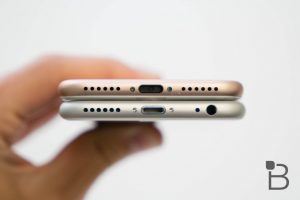The world of business revolves around certain significant objectives which companies strive to achieve. Companies have a heavy burden on their shoulders and can consequently find themselves in ethical debacles attempting to simultaneously fulfill consumer, employer and financier satisfaction.
Such is the case with one of the world’s largest and most prosperous technological companies, Apple Inc. In a recent article, Apple has been accused of mandating a policy of planned obsolescence, which brings into question the concept of business ethics, and the social responsibilities of a company.
As conveyed by Jonathan Sterne in his article, Apple’s removal of the headphone jack for their latest iPhone model (1.1) can be described as “innovation to keep people buying the same things in new packages.” To elaborate, Apple has transformed the universal standard of a headphone jack admired by all consumers and companies alike for decades, replacing it with a Bluetooth alternative which achieves a marginally superior sound output, at a significantly higher cost. By doing so, thousands of consumer headphones have been rendered obsolete, giving us the notion that Apple deliberately wants us to spend more on their newest product. The colossal backlash from the consumer community can be used to demonstrate the consequences of a company that does not conform to all stakeholders, in this case, consumers.

(1.1) An image showcasing the loss of the headphone jack on the iPhone 7
Most importantly, Sterne mentions that Apple themselves have explicitly admitted to setting a three-year life expectancy rate to their notorious iPhone, raising the question: Is your iPhone doomed for failure the moment you purchase it?
This ethical question can be analysed through a comparison of shareholder and stakeholder theory, explored by Milton Freidman and Edward Freeman. According to Freidman, the only social responsibility of a business is to maximize profits to its shareholders, whilst abiding by the law. Here, parallels can be drawn between Freidman’s stance and Apple’s value-based management. By setting a three-year life expectancy rate to iPhones, removing the headphone jack and intentionally slowing down previous iOS software upon the release of newer models (1.2), Apple is tugging at the sleeves of consumers to make constant expenditure on their products for shameless profit.

(1.2) Statistical Analysis of Apple’s Planned Obsolesence
Is Apple technically considered to be in the right for doing so? Freeman, and myself included, would argue they are not. All stakeholders working together is “what makes capitalism tick”. For a business to be successful, a company must “create value for customers, suppliers, employees, communities and financiers.” It is undeniable that Apple does not conform to this theory- it puts its profits first, observed through the removal of the headphone jack and deliberate sabotage of its older models.
To all future consumers- I encourage you all to delve into Apple’s intentions, and ensure your money is spent wisely. You may be purchasing from a company which violates business ethics, plunging the free market into peril.
Word Count: 444
Dimitrije Gacic
